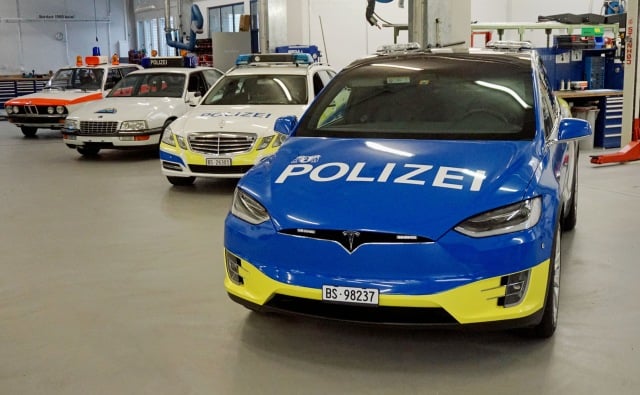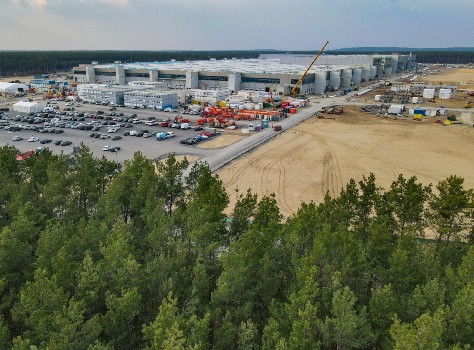On December 5th, police in the canton unveiled the first of seven new Tesla X 100D emergency response vehicles, each with a price tag of 140,000 Swiss francs (€124,000).
But now there are fears a planned spring 2019 roll-out will be delayed after concerns were raised about the fact that the internet-connected could “listen in” on their drivers because key commands are voice-activated.
Data from these voice recordings could theoretically be mined from Tesla servers, regional daily BaslerZeitung initially reported. However, the newspaper later clarified that this example had been intended as a fictitious example of a potential issue with the Tesla police cars after the carmaker on Friday stated that its vehicles do not make record voice.
“Thus, no voice recordings are conducted and, logically, no voice recordings are transmitted to the server and evaluated,” said Tesla in comments emailed to Swiss news outlets including The Local on Friday.
But there are still issues with the fact that Tesla can remotely access its cars – as was demonstrated in 2017 when the company remotely upgraded the batteries of vehicle owners escaping from the path of Hurricane Irma in the US state of Florida.
In addition, Tesla can access information on the location of its cars to diagnose and resolve vehicle issues, although the company states this option is limited to a small number of personnel. The company can also, with customer consent, collect anonymized information on the direction and speed its cars are travelling – potentially problematic for a police force.
Telsa’s privacy policy spells out what the electric carmaker can and can’t do. The policy also states that data sharing between the company and its cars can be switched off, although Tesla warns this will prevent it from being able to notify customers about vehicle issues in real time.
This could result in “reduced functionality, serious damage, or inoperability,” the policy states.
However, in emailed comments, Tesla on Friday told The Local: “Customers can deactivate the transfer of data from the vehicle upon request. The vehicle would still be safe to manoeuvre.”
A police spokesperson said on Thursday the force did not want to fully cut data links between its Tesla cars and the Elon Musk firm for safety reasons, the 20 Minuten news site reported.
No delays expected
Later on Thursday, police in Basel-Stadt responded to Swiss media reports about the Teslas by denying the data protection issues would not delay the planned spring roll-out.
It said the issues were part of the “pioneering” aspect of the purchase of the Teslas and that public authorities would have to learn to deal with issues related to the use of devices connected to the internet.
Read also: Switzerland to get Europe's largest electric vehicle charging hub



 Please whitelist us to continue reading.
Please whitelist us to continue reading.